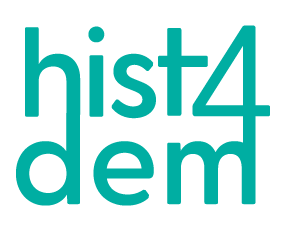The German Network Sustainable Research (NNW) views with acute concern the escalating threats to academic freedom and institutional autonomy in the United States.
These threats are not isolated incidents but part of a systematic, multi-pronged campaign to subordinate higher education to political agendas. They have alarming implications for the future of research and democratic discourse, which extend beyond the United States. Over the last months, we have seen that even private institutions of the highest standing are vulnerable to political and financial coercion. Often, the pressures from the outside are reinforced by the responses of university administrations, which act preemptively to avoid further sanctions, eroding academic autonomy from within.
Thus, at Columbia University, the Trump administration imposed a series of coercive demands—including the reorganization of disciplinary procedures, the subordination of academic departments to direct presidential oversight, and the revision of curricula — as preconditions for the release of hundreds of millions in frozen research funding. Columbia’s compliance has set a dangerous precedent, demonstrating how financial leverage can be used to dismantle academic self-governance. The university’s adoption of a new definition of antisemitism and the expansion of its Tel Aviv Center, alongside the prohibition of demonstrations and masks on campus, illustrate how political pressure can rapidly alter both policy and academic culture.
Harvard University has taken a different path, refusing to capitulate to federal demands and initiating legal action to challenge the administration’s overreach. However, the stakes are high: the government’s threat to revoke Harvard’s tax-exempt status or the efforts to halt international student admission are unprecedented interventions in the workings of a leading research institution. The administration’s demands—to abolish diversity initiatives, review student groups and academic programs, and subject hiring and admissions to external audits—strike at the heart of academic freedom and the principle of shared governance. The chilling effect on free expression and inquiry is already evident, as scholars report self-censorship and a growing climate of fear reminiscent of the McCarthy era.
These interventions are not limited to explicit bans or legislative acts. They are enforced through financial threats, administrative overreach, and anticipatory compliance—often before any formal directive is issued. Websites are deleted, job postings rewritten, curricula adjusted, and staff sanctioned, all in response to perceived political pressures. The result is a climate of self-censorship and institutional timidity, where the pursuit of knowledge is increasingly constrained by external agendas.
For Germany, recent events highlight growing concerns about academic freedom. Restrictions and pressures are increasingly evident, especially in the humanities and social sciences—fields that engage more often than others with the histories and experiences of minorities and marginalized groups. Such pressures may be reflected in the disinvitation of scholars due to their political profile, in increased scrutiny of research and teaching on sensitive political topics, and in strategic allegations of antisemitism. Universities must remain spaces where difficult questions can be asked and diverse perspectives can be discussed, free from undue political pressure. Although academic freedom is constitutionally protected, it faces challenges from both political and social actors. Additionally, the widespread use of fixed-term contracts and precarious employment conditions in academia as well as the universities’ grant dependency undermine the stability and independence necessary for genuine academic freedom.
We therefore call for a robust, collective defense of academic freedom. We declare our solidarity with our colleagues in the United States and elsewhere who are hindered by political interference and control. We urge scholars, students, and the broader academic community (including our colleagues in administration) to actively resist the erosion of academic autonomy and fortify the university as a space for critical inquiry and democratic debate. From the events in the U.S. and other countries, we learn that this requires not only vigilance against external threats but also a critical examination of internal structures that undermine scholarly independence. We commit ourselves to defend the university as a vital node of civil society, where open discourse, critical inquiry, and the pursuit of truth remain non-negotiable.
Prof. Dr. Ruth Mayer
(on behalf of the Network Sustainable Research/Netzwerk Nachhaltige Wissenschaft)
